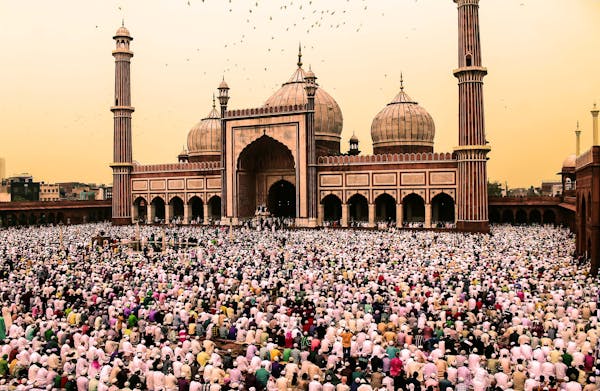﷽
➖➖➖
IMPERMISSIBLE BEAUTIFICATION IN ISLAM
➖ ➖ ➖
EPISODE 4⃣: TATTOOS
➖ ➖ ➖
6️⃣ TATTOOS
‘Abd-Allaah ibn Mas’ood (رحمه الله) said: “May Allāh curse the women who do tattoos and those for whom tattoos are done, those who pluck their eyebrows and those who file their teeth for the purpose of beautification and alter the creation of Allāh.”
(Al-Bukhari, al-Libas, 5587; Muslim, al-Libas, 5538)
Washimah refers to the woman who does tattoos (washm). The one to whom it is done is called mawshumah, and if she asks for that to be done she is called mustawshimah.
A tattoo is a form of body modification made by inserting tattoo ink, dyes, and/or pigments, either indelible or temporary, into the dermis layer of the skin to form a design.
Tattoos may be done for cosmetic or medical reasons. Medical tattoos are used to ensure instruments are properly located for repeated application of radiotherapy.
Tattooing has also been used to convey medical information about the wearer (e.g., blood group, medical condition, etc.). The Alzheimer patients may be tattooed with their names, so they may be easily identified if they go missing. Such tattoos are permissible, as they are for legitimate reasons and not to change the creation of Allāh for beautification.
The other use for tattoos is cosmetic uses. This includes artistic designs on the skin, which is easily the most common type of tattoo, and permanent or semipermanent makeup, which is the use of tattoos to enhance eyebrows, lips (in form as liner and/or lipstick), eyes (in form of liner), and even moles on the face, usually with natural colors, as the designs are intended to resemble makeup.
Such tattooing is haraam in all forms, whether it causes pain or not. This is because it involves changing the creation of Allāh, and because the Prophet (ﷺ) cursed the one who does tattoos and the one for whom that is done.
It was also suggested that what is forbidden is only that which is permanent, because that is changing the creation of Allāh; as for that which is not permanent, such as kohl , which is used for adornment by women, that is permitted by the scholars.
(Tafseer al-Qurtubi, 5/393)
Thus, dyeing with henna and the likes is not prohibited. It does not change the colour of the skin, rather it is drawing and decoration with colours that disappear on its own after a while.
There are also temporary tattoos which may last for up to a year and fade afterwards. Scholars differ on the permissibility of such tattoos. However, researches show that most of such tattoos are not water permeable, meaning water will miss the spots they’re on during ablution. To be on the safe side, Muslims are advised to keep away from such, and if they have to, they should stay within the limits of Allāh with regards not changing His creation, not exposing the awrah for the tattoo or to show it off and not drawing of animate, immoral or unislamic symbols. Also, the colours and dyes used should not be harmful to the skin.
This is because the Prophet (ﷺ) said: “There should be neither harming nor reciprocating harm.”
(Narrated by Ibn Majah (784); classed as sahih by al-Albani in Irwa al-Ghalil.)







